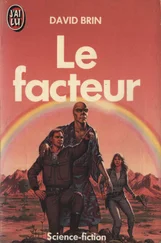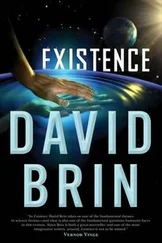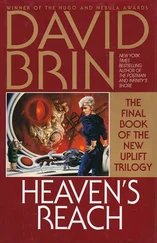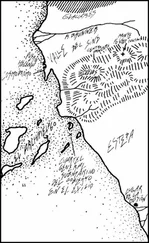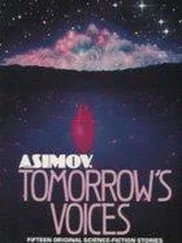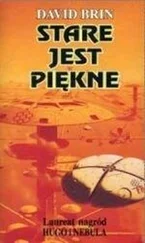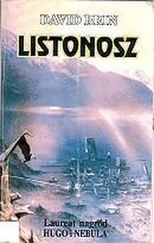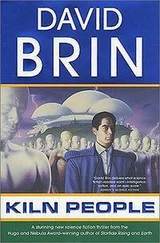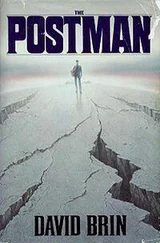In their case, genius overcame a crippling lack of harmony. Leie and I aren’t geniuses, but we don’t exactly hate each other, either. Maybe something in between is possible. If we both get out of this mess alive, perhaps we can learn from the Upsalas.
Brill took out a pocketwatch and cleared her throat. “That was awfully pleasant, yes? Now might we get back to work? I’d like to finish soon. My babysitter charges extra after ten.”
* * *
The next series dealt with Maia’s “cryptomathematical talent,” or her unforeseen affinity for games like Life. For an hour, Maia waged midget battles on a computerized board like Renna’s, trying—usually in vain—to prevent the gadget from wreaking havoc on her patterns. Brill kept demanding that Maia use new “recursion rules,” meaning ways to make things progressively, then impossibly harder. It was a tense, sweaty exercise of guesswork and raw skill. Maia loved it … until the patterns started blurring and her endurance ran out.
“Why are you doing this to me?” she moaned at the end.
“It is suspected that you may qualify for a niche,” Brill answered dryly, turning off the machine. Maia rubbed her eyes. “What niche?”
Brill paused. “I can tell you what not to expect. Do not hope for entry to the university based on your talent with patterns and symbol systems. If it carries across generations, a winter child of yours might apply on its basis, but for you it is already too late to be a mathematician.”
Thanks, Maia thought, with bitterness that surprised her. Who asked, anyway?
“Moreover, you appear to have too high an action potential for the contemplative life,” Brill went on, scanning a chart. “That isn’t a drawback to my client, although other factors—”
Maia sat up quickly. “Client? You mean this isn’t for the civil service?” She sensed the Persim clone edge forward, suddenly alert. Brill shrugged, as if it didn’t matter. “I’ve been commissioned by a member of my own family, to seek workers for a new venture. Frankly, it’s a long shot, not a safe niche, by any means.”
“But…” Maia sensed anger in the tense silence of the Persim cloneling. “Odo assumed this was for—”
“I’m not responsible for Odo’s assumptions. Any potential employer may contract with the examination service. This isn’t relevant to Persim Clan’s present political struggles, so Odo has no cause for concern. Now, shall we get back to work? Our last item will be—”
“I’m a good navigator!” Maia blurted. “And I’m pretty good with machines. My twin’s better. We’re mirror twins, you know. So maybe… between us…” Maia’s voice trailed off, weighed down by embarrassment over her outburst. Some lurking, childish remnant had leaped out, pleading a case she no longer even cared to make.
“Those factors may be relevant,” Brill commented after a beat. There was a brief light of kindness in the examiner’s eyes. “Now, the last item is an essay question. I want you to describe three episodes in which you solved puzzle locks to enter hidden chambers. You know the events I speak of. Succinctly note what factors, logical and intuitive, led you to surmise correct answers. Limit each answer to a hundred words. Pick up your pencil. Begin.”
Maia sighed and started writing. Apparently, everyone knew of her adventures under Jellicoe Isle. By now, the place was back in the hands of those same conservative forces that had, for centuries, maintained the Defense Center. But the secret was out for good.
… so our success at the red-metal door was partly luck… she wrote. I once overheard some words which made me realize the symbols in the hexagons could mean…
Maia knew she was doing poorly, failing to organize her thoughts in coherent order. Pondering Jellicoe also reminded Maia of problems more real than these stupid tests. If only Leie and Brod had noticed the gradual transition of power there, and snuck out with Naroin’s friends while it was still possible! Now, apparently, it was too late.
Maia finished describing the crimson door she and Brod had found in the sea cave, and moved on to summarize her logic in the sanctuary auditorium. She started by giving full credit to Leie and the ill-fated navigator, for their parts in solving the riddle that led to discovering the Great Former. Except that also meant sharing blame for what followed—the violent invasion of those cryptic precincts, forcing Renna to cut short his preparations and attempt that deadly, premature launch into a terrible blue sky.
It’s my doing. Mine alone. She had to close her eyes and inhale deeply. I can’t think about that right now. Save it. Save it for later.
Maia finished that summary, putting the second piece of paper atop the first. She stared at the third blank sheet, then looked up in bafflement. “ What third puzzle lock? I don’t recall—”
“The earliest. When you were four. Breaking into your mothers’ storeroom.”
Maia stared in surprise. “How did you—”
“Never mind that. Please finish. This test measures spontaneous response under pressure, not skill or completeness of recollection.”
Maia suspected the jargon hid something, some meaning hidden in the words, but it escaped her. Sighing, she bent over to write down what she could remember of that long-ago day, when the creaking dumbwaiter carried two young twins for the last time into those catacombs beneath the Lamai kitchens.
In her hand, Maia had clutched a scrawled solution, her final effort to defeat the stubborn lock. With Leie holding a lantern, she pressed stony figures—twining snakes, stars, and other symbols—which clicked into place, one by one. Neither twin breathed as the defiant, iron-bound door at long last slid aside to reveal—
Bones. Row after row of neat stacks of bones. Femurs. Tibia. Fibia. Grinning skulls. Maia had leapt back; and Leie’s surprised cry had rattled the wine racks behind them, her eyes showing white clear around as they tremulously entered the secret chamber, gaping at generation after generation of ancestresses… each of whom had been genetically their own mother. There were a lot of mothers down there. The ossuary had been chill, silently eerie. Maia gratefully saw no whole skeletons. Lamai neatness—sorting and stacking the bones primly by type—made it harder to envision them twitching to vengeful life.
Other things had lain hidden in the chamber. Icy cabinets held dusty records. Then, toward the back, they encountered more menacing items. Weapons. Vicious death machines, outlawed to family militias, but stored in keeping with the motto of Lamatia Clan—“Better Safe Than Sorry.”
Afterward, both twins had had lurid dreams, but soon they replaced qualms with jesting scorn for that great chain of individuals leading back to a mythical, lost set of genetic grandparents. The intermediary—the Lamai person —had conquered time, but apparently would never overcome her deep insecurity. In the end, what Maia recalled best were the months spent tantalized by a puzzle. Once solved, she realized, a riddle that had seemed compelling all too often turns out to be nothing but insipid.
* * *
After Brill went home, Maia crawled between the bee-silk sheets, exhausted, but unable to stop thinking. Renna, too, was immortal in a way. Lysos would’ve thought his method silly, as he probably thought hers.
Perhaps they both were right.
Sleep came eventually. She did not dream, but her hands twitched, as if sensing a vague but powerful need to reach for tools.
The next day dawned eerie as Maia watched frost evaporate from flowers in the garden, perfuming the air with scents of roses and loneliness. When Odo collected her for their daily ride, neither woman spoke. Maia kept mulling over Brill Upsala’s parting remarks the night before.
Читать дальше

